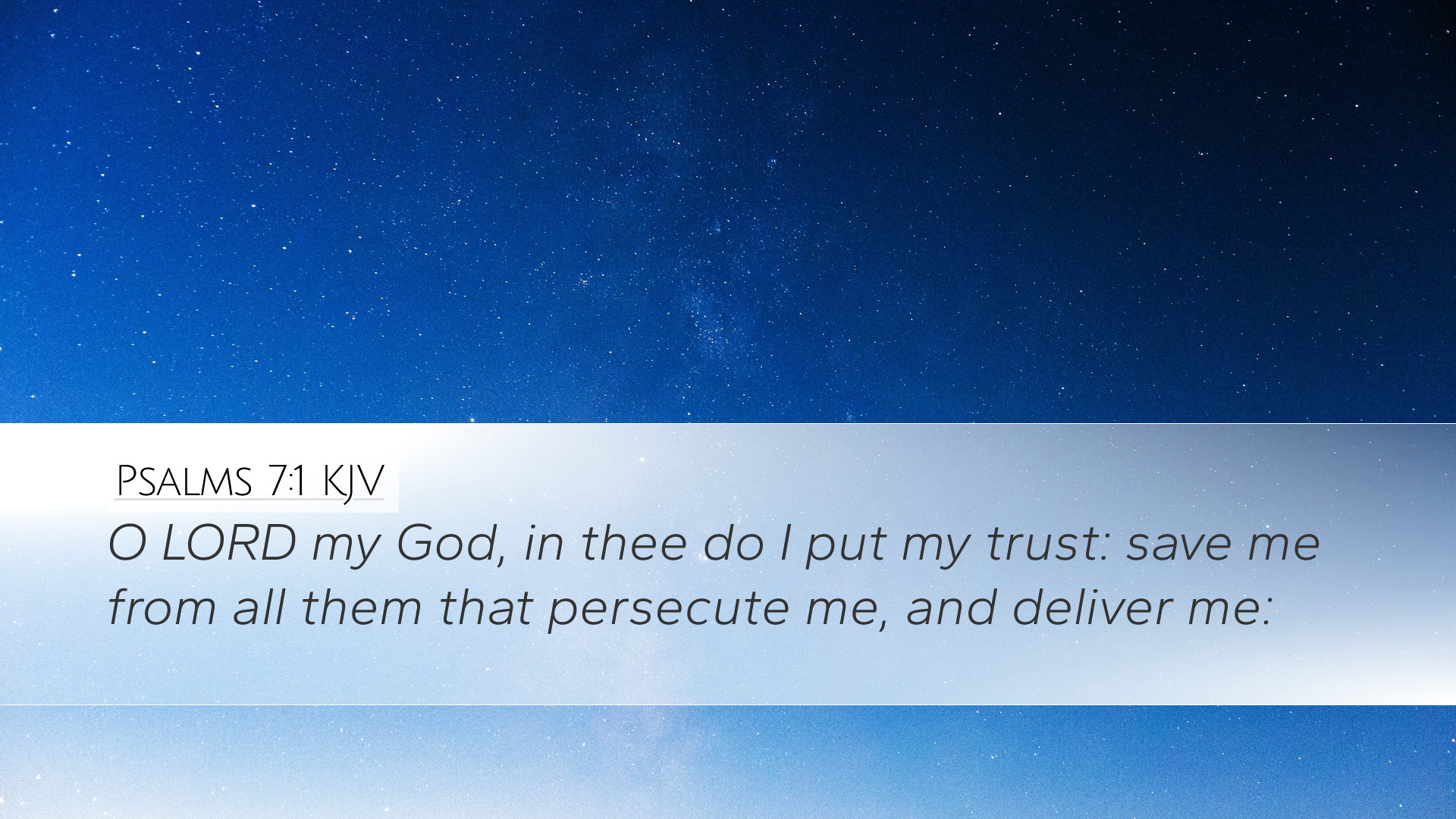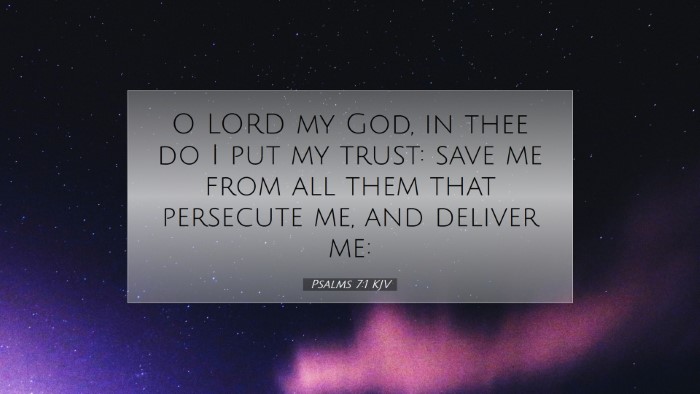Commentary on Psalms 7:1
Verse: "O Lord my God, in thee do I put my trust: save me from all them that persecute me, and deliver me."
Introduction
This verse encapsulates a profound plea for divine assistance amidst persecution. It reflects the psalmist's earnest trust in God, which serves not only as a personal declaration but also a model for believers facing adversities. The significance of this verse extends beyond its immediate context, offering timeless insights for preachers, theologians, and scholars.
Exegesis and Meaning
Psalms 7:1 can be approached through various lenses, including the historical, literary, and theological.
-
Historical Context:
Many scholars attribute this psalm to David, written during a time of distress, likely stemming from conflicts with enemies such as Saul or others who sought his demise. This context highlights the intense personal struggle and the broader spiritual battle faced by the author.
-
Literary Structure:
The structure of this psalm reflects a lament, a common genre in the Psalter, where the author expresses anguish yet ultimately reaffirms his faith in God. The Hebrew term for 'trust' implies a deep-seated reliance on God, distinguishing it from a mere hope for relief.
-
Theological Implications:
This verse succinctly summarizes the essence of a believer's relationship with God—full reliance on divine providence. The phrase 'O Lord my God' indicates a personal connection, underscoring the intimacy of the psalmist's faith.
Insights from Public Domain Commentaries
Matthew Henry
Henry emphasizes the sincerity of the psalmist's trust, suggesting that such trust is rooted in an understanding of God's character and His promises. He notes that the plea for deliverance is not merely an escape from trouble but a request for God’s intervention in righteousness. For Henry, the depth of the psalmist’s reliance invites readers to reflect on the nature of their own trust in God.
Albert Barnes
Barnes interprets the term 'trust' as an active confidence in God amidst despair. He elaborates that this trust leads to an appeal for salvation, portraying God as the ultimate refuge. His commentary details how this verse serves both as a personal declaration and a communal reminder to seek divine assistance in times of distress. Furthermore, he draws attention to the conditional aspects of this relationship—reflecting that deliverance often hinges on the genuineness of one's faith.
Adam Clarke
Clarke brings forth a more poetic interpretation, suggesting that the psalmist’s heart is "enveloped in trust." He discusses the historical narrative that may have colored this plea, providing a rich backdrop against which this cry for help can be appreciated. Clarke’s insight into the word “save” expands the interpretation to encompass both physical and spiritual salvation, encouraging readers to seek God as a protector in all aspects of life.
Applications for Today
This verse serves not only as a historical text but also as a practical guide for contemporary believers. Here are some applications drawn from the aforementioned commentaries:
-
Reinforcement of Personal Faith:
Pastors can encourage congregants to establish a deep-rooted trust in God, especially when faced with personal and communal struggles. Psalms 7:1 acts as a reminder that authentic belief involves reaching out to God for guidance and relief.
-
Collective Prayer and Support:
This verse calls the church to unite in prayer, safeguarding one another amidst trials. As believers come together to echo the psalmist's plea, they affirm the importance of community in spiritual warfare.
-
Understanding Divine Justice:
The psalm reflects a yearning for justice against persecution. Theological reflections on this can lead to discussions about God's justice, mercy, and the believer's role in advocating for the oppressed.
Conclusion
Psalms 7:1 is a powerful affirmation of trust in God, encapsulating the essence of a believer's reliance on divine providence amidst turmoil. Insights from public domain commentators enrich our understanding and application of this scripture, encouraging a deeper exploration of faith that resonates with the struggles faced by many today.


